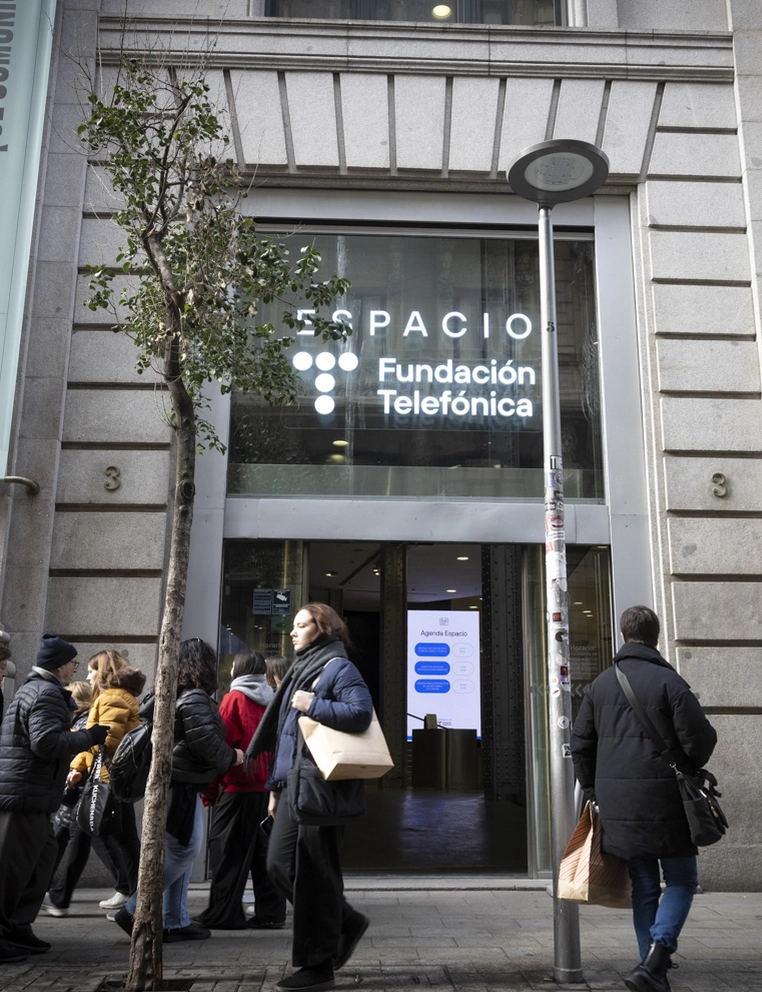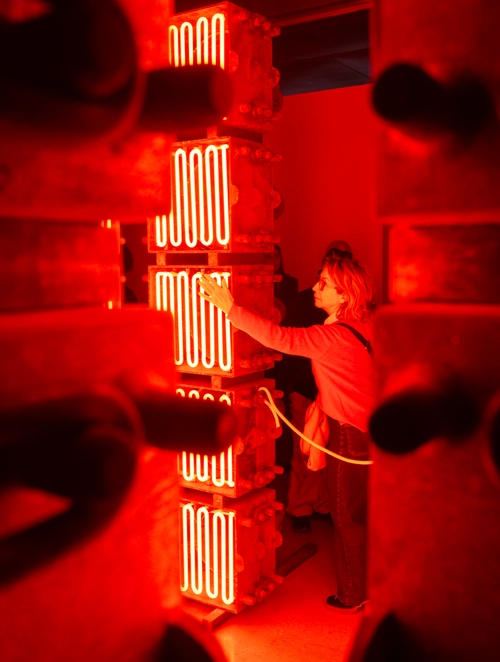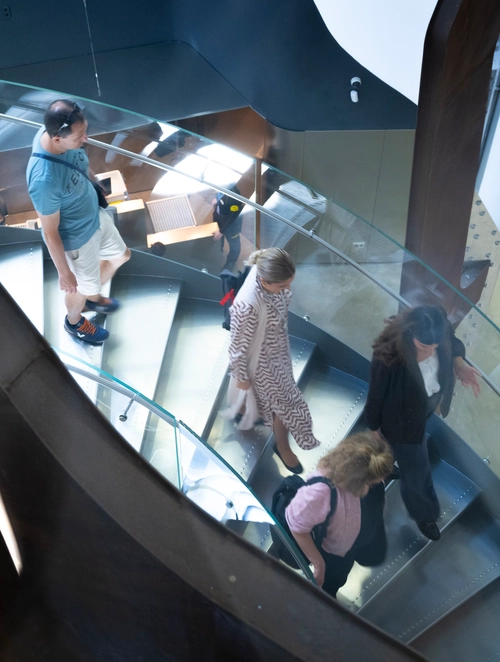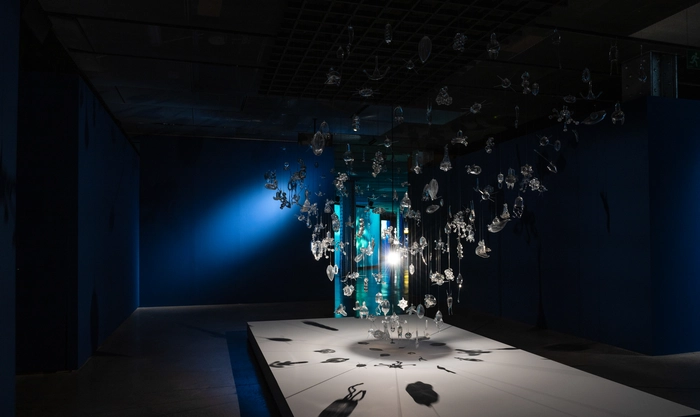Espacio Fundación Telefónica
We contribute to promote reflection and debate on the trends associated with digitalization that affect all aspects of life, always from a solid humanistic perspective.
We generate spaces to share ideas, learn, reflect and experience the value of technology with culture and knowledge as valuable resources that help us understand where the future is going.
We generate learning spaces for all types of audiences
Discover all we have to offer
Art, culture and ideas
A space for thinking
Through discussion forums, exhibitions, workshops, publications and digital formats, with the help of experts in different disciplines and thanks to synergies with national and international cultural institutions, inside and outside Espacio Fundación Telefónica in Madrid, we seek to combine creativity and technology to learn more and shed light on a society that is evolving at a dizzying pace.
Where

We are located in the very center of Madrid: Fuencarral Street, 3. Come and visit our exhibitions, we are waiting for you!
When

Tuesday, Wednesday, Thursday and Friday from 10:00 am to 8:00 pm. Saturdays, Sundays and holidays, from 11:00 to 20:00h. Closed to the public every Monday and on December 25 and January 1 and 6.
How

Admission to all our exhibitions and events is free of charge.
